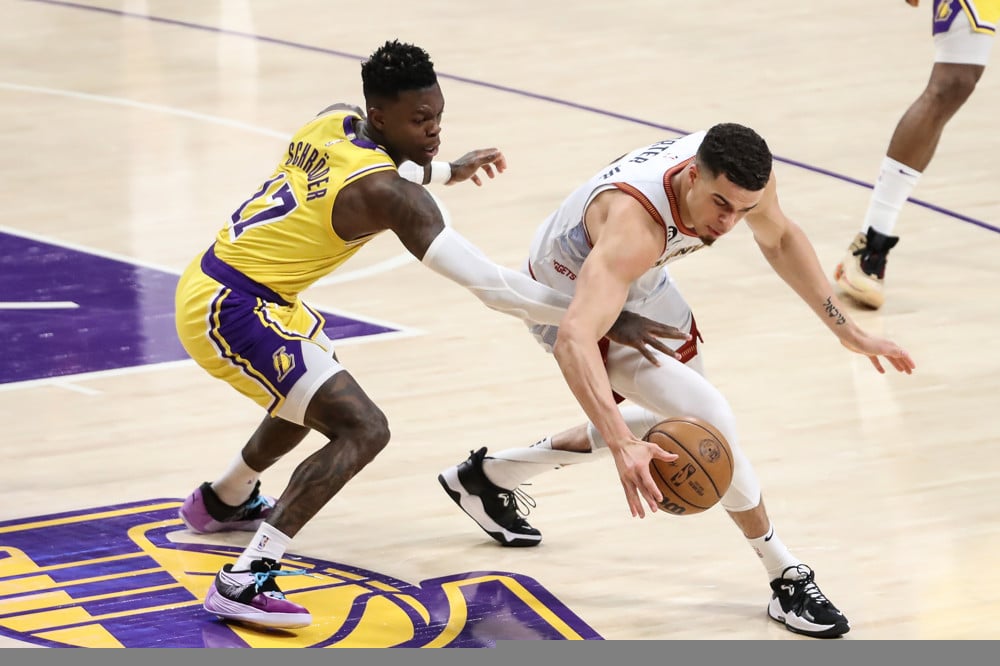World
A brief look at NASCAR’s history racing around the world

The NASCAR Cup Series including Autodromo Hermanos Rodriguez in the 2025 season schedule is a remarkable move for the sport, which has been pushing for an international Cup race for some time. Cup cars haven’t raced outside of the United States in over 25 years, and not in a points-paying championship event since 1958.
Prior to the Mexico City decision and announcement, the series had also been considering a date at Circuit Gilles Villeneuve in Montreal, Canada and showcased ambitions for expanding into Brazil. And it seems other locales and countries are expressing interest in hosting, or have an international series of their own. We reported recently that the city of Sao Paulo is interested in hosting the 2026 Clash, and Daniel Suarez himself just raced (and won) in a NASCAR Brazil Series event at Interlagos.
Suarez is but one example of the few international drivers who have won at the top level of the sport — and the list of international races is even shorter. Here are the few places NASCAR’s managed to get its passport stamped and go racing.
1952 Unnamed 100-mile event – Stamford Park – Niagara Falls, Canada
The first Cup race outside of the United States took place on July 1st, 1952. The Ontario half-mile dirt track had been around since 1923, but closed one year after the Cup Series visited. Known as a ‘car killer,’ it lived up to its name against the early pioneers of NASCAR. Paying an admission of one dollar for adults and 50 cents for children, spectators watched on as only three of the 17 starters made it to the finish line in the 200-lap race. Buddy Sherman made his ’52 Hudson last, averaging a speed of 45.610mph and winning by two laps over NASCAR Hall of Famer Herb Thomas. It was Sherman’s only victory in the Cup Series.
Canadian flag
Photo by: FIA World Rallycross
1958 Jim Mideon 500 – Exhibition Stadium – Toronto, Canada
On July 18th, 1958, NASCAR returned to Canada to race inside the now demolished Canadian National Exhibition Stadium, competing on a 0.333-mile asphalt oval that had a striking resemblance to Bowman Gray Stadium. Lee Petty would take victory, leading 29 of 100 laps in a race that only lasted 46 minutes.
However, the most important story of this race may not be who won, but who made their debut. The 21-year-old son of Lee Petty made his first of 1,184 starts in NASCAR’s last points-paying Cup race outside of the United States. The future ‘King’ of NASCAR was wrecked out of the event when he got in the way of the fastest man in the field — his father.

Race winner Lee Petty
Photo by: NASCAR Media
1988 Goodyear NASCAR 500 – Calder Park Thunderdome – Melbourne, Australia
30 years after the last Cup race on international soil, the sport made the bold step to host a non-points race on the other side of the planet. On February 28th, 1988, NASCAR ventured far beyond the continent of North America to race in Australia. The 280-lap race took place on the oval at Calder Park Raceway with 24-degree banked corners.
The 32 starters featured several stars from the Australia/New Zealand motorsport world, including Bathurst 1000 champions Dick Johnson, Jim Richards, and Allan Grice. But it was the NASCAR regulars who dominated the event with Neil Bonnett capturing the checkered flag just ahead of Bobby Allison in a 1-2 finish for the Alabama Gang. The event led to the creation of a NASCAR Australia racing division, which operated from 1989 to 2002.
In modern NASCAR, several drivers from ‘down under’ have made the trek across the ocean to race in NASCAR, showing how the bond remains strong between the two. Marcos Ambrose and Shane van Gisbergen, both champions of the Supercars division, have gone on to become winners at the top level of the sport with SVG about to embark on his first full-time Cup season.

Shane Van Gisbergen, Kaulig Racing, WeatherTech Chevrolet Camaro
Photo by: Matthew T. Thacker / NKP / Motorsport Images
1996 & 1997 NASCAR Thunder Special – Suzuka Circuit – Suzuka, Japan
In the next decade, NASCAR shifted focus to Japan as its next destination for an exhibition race. Following the completion of the 1996 season, the sport sanctioned a race on the East Course of the Suzuka Circuit on November 24th.
The interest around the event was electric. It attracted Japanese racing stars such as ‘Drift King’ Keiichi Tsuchiya, as well as Hideo Fukuyama, Akihiko Nakaya, and Kazuteru Wakida. Rusty Wallace beat Dale Earnhardt by just over a second, leading 84 of 100 laps en route to the victory.
Due to the success of the race, NASCAR returned one year later to do it all again. However, rain became an issue for the sequel. The sanctioning body broke out the wet-weather tires for the special event, and most of the NASCAR drivers in the field were about to get their first experience racing in the rain. Mike Skinner won the day, beating Mark Martin by 3.7s.
These races served as inspiration for future F1 driver and Le Mans 24 champion Kamui Kobayashi, who watched on and was finally fulfilled a lifelong dream to race in NASCAR when he made his Cup debut last year.

Kamui Kobayashi, 23XI Racing, Mobil 1 50th Anniversary Toyota Camry
Photo by: Rusty Jarrett / NKP / Motorsport Images
1998 Coca-Cola 500 – Twin Ring Motegi – Motegi, Japan
For the third consecutive year, NASCAR returned to Japan on November 22nd, but this time, they went oval racing. After two years at Suzuka, the race moved to the oval track at Twin Ring Motegi for a 201-lap event.
31 drivers started the race in a field that saw Dale Earnhardt Sr. and Dale Earnhardt Jr. compete against each other in Cup cars for the very first time. The race came down to a showdown between Jeff Gordon and Mike Skinner. Gordon was fresh off his third Cup title and ran Skinner down in the closing laps. He got all the way to the right-rear of his fellow Chevrolet driver, but could not quite get alongside as the checkered flag flew.

Motegi circuit logo
Photo by: Gold and Goose / Motorsport Images
After Japan
NASCAR’s three-year experiment in Japan was over and while many thought it was the beginning of something, it turned out to be the end. Cup cars have not raced outside of the US since that day in November, almost 26 years ago.
In the years that followed, the Xfinity Series has raced in Mexico City and Montreal. The Truck Series has raced at Canadian Tire Motorsports Park. NASCAR has formed international stock car racings divisions in Mexico, Brazil, and even Europe. In 2016, the sport had its first foreign-born driver win a national-level title when Daniel Suarez became the champion of the Xfinity Series. At Watkins Glen, just two years ago, the sport set a record for countries represented in a single Cup race at seven total.
The sport has been edging closer to an international race over the years and the powers that be have shown renewed interest in global expansion. When the Cup Series heads to Mexico in 2025, they will make history and hopefully, mark the start of a new era for NASCAR. And who knows? Maybe Brazil is next.









